When to Start Deworming Your Puppy: Everything You Need to Know
Introduction
Parasite control is a cornerstone of puppy health, with many infections acquired prior to birth or during nursing. Determining the correct time to initiate deworming safeguards puppies from early health complications. This guide provides evidence-based recommendations on when and how to start deworming your puppy.
1. Ideal Age to Begin Deworming
Two Weeks of Age
Reason: Puppies can contract roundworms from their mother in utero and through milk.
Initial Medication: Pyrantel pamoate, 5 mg/kg, orally; repeat every 2 weeks until 12 weeks.
Four to Six Weeks of Age
Medication Addition: Introduce fenbendazole (50 mg/kg once daily for 3 consecutive days) if mixed infections are suspected.
Fecal Exam: Perform a fecal float to identify specific parasite burdens and adjust treatment accordingly.
2. Standard Deworming Protocol
| Age | Medication | Dosage | Notes |
|---|---|---|---|
| 2 Weeks | Pyrantel Pamoate | 5 mg/kg orally | First dose; covers roundworms, hookworms |
| 4 Weeks | Pyrantel Pamoate | 5 mg/kg orally | Second dose; add fenbendazole if needed |
| 6 Weeks | Fenbendazole | 50 mg/kg once daily for 3 days | Targets broad-spectrum parasites |
| 8 Weeks | Pyrantel Pamoate | 5 mg/kg orally | Third dose |
| 10 Weeks | Fenbendazole | 50 mg/kg once daily for 3 days | Continued broad coverage |
| 12 Weeks | Pyrantel Pamoate/Praziquantel | 5 mg/kg pyrantel, 5–10 mg/kg praziquantel | Comprehensive tapeworm coverage |
3. Role of Veterinary Examination
Initial Check-Up (6–8 Weeks):
Physical exam, weight measurement, and baseline fecal test.
Tailor deworming protocol based on parasite load and overall health.
Follow-Up Visits:
Every 2–4 weeks until 12 weeks to reassess parasite status.
After 12 weeks, transition to a maintenance schedule (every 3–6 months).
4. Monitoring and Hygiene Measures
Stool Monitoring: Inspect daily for evidence of worms, diarrhea, or blood.
Clean Environment:
Disinfect bedding and living areas weekly.
Remove feces promptly to interrupt parasite life cycles.
Nutrition and Immune Support:
Provide high-quality puppy food to boost immunity.
Consider probiotics after deworming to restore gut flora.
5. Special Considerations
Breed Susceptibility: Certain breeds (e.g., Greyhounds) may require dose adjustments due to lean body mass.
Concurrent Vaccinations: Schedule vaccinations after completing initial deworming to ensure the puppy’s immune system responds effectively.
Signs of Adverse Reactions: Monitor for vomiting, diarrhea, or lethargy post-medication; contact veterinarian if severe.
Conclusion
Initiating deworming at two weeks of age and following a structured, veterinarian-guided schedule protects puppies from the earliest parasite threats. Combined with regular fecal exams, sanitation, and proper nutrition, this approach ensures optimal health and development.
Explore Dogs
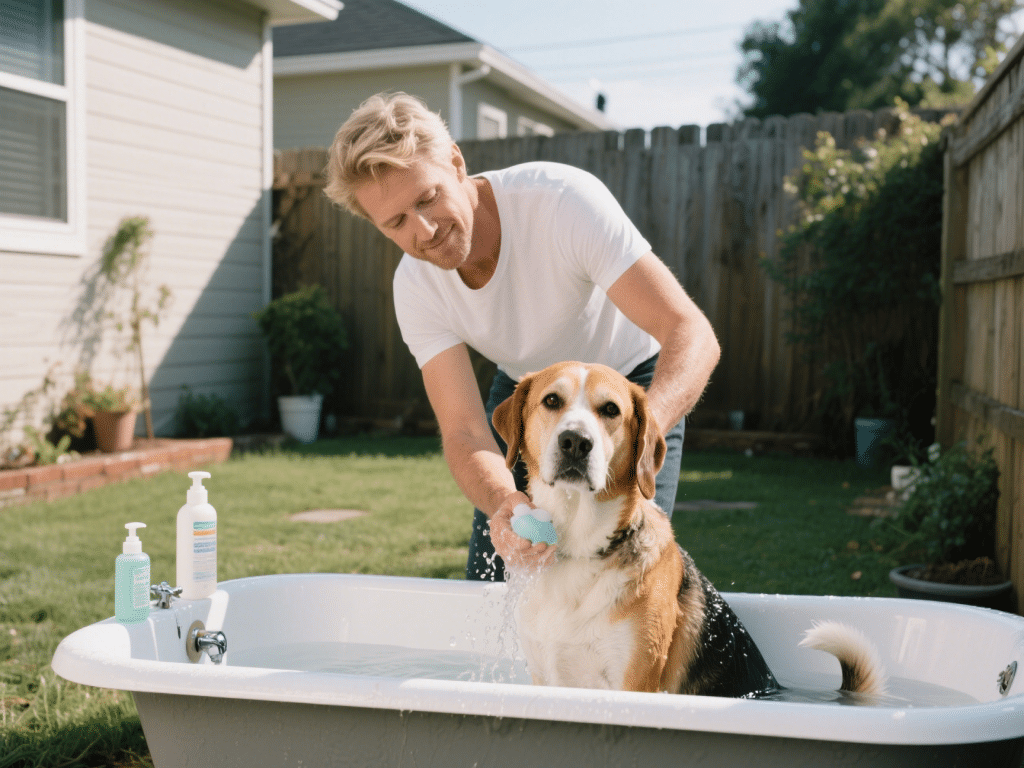
Safe Timing to Bathe Your Dog Before or After Deworming
IntroductionBathing a dog too soon before or after deworming may impact medication absorption and sk...
Read More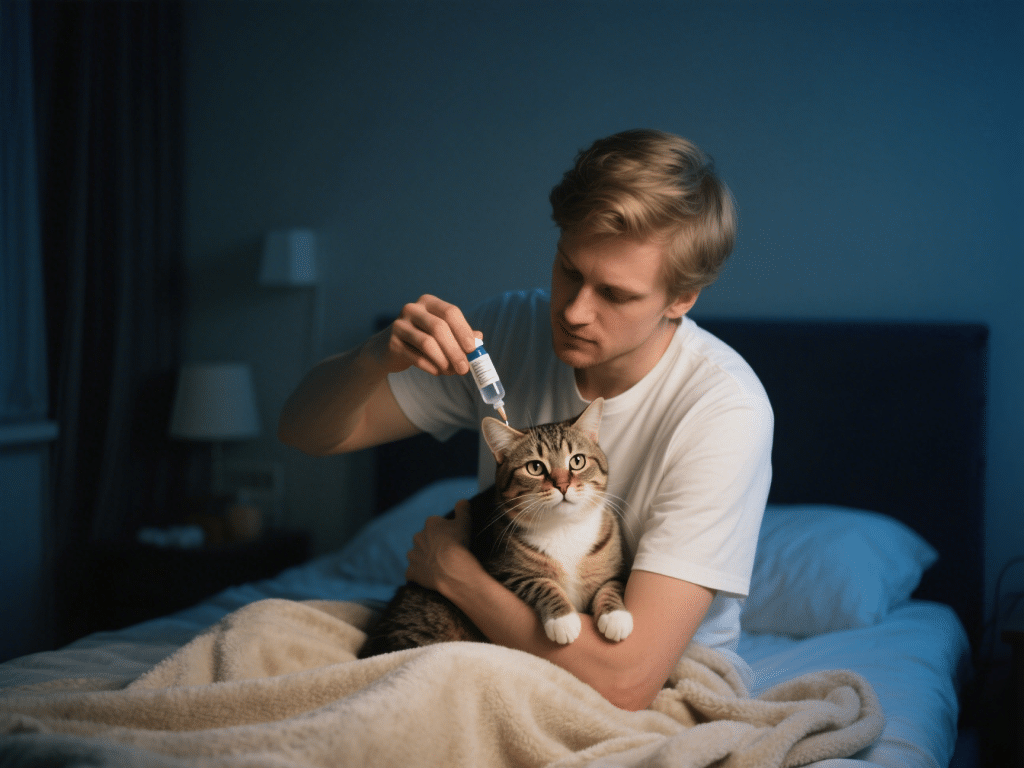
Step-by-Step: Administering Dewormer to a Nervous Cat
IntroductionAdministering oral medication to a nervous cat can be challenging. Stress can compromise...
Read More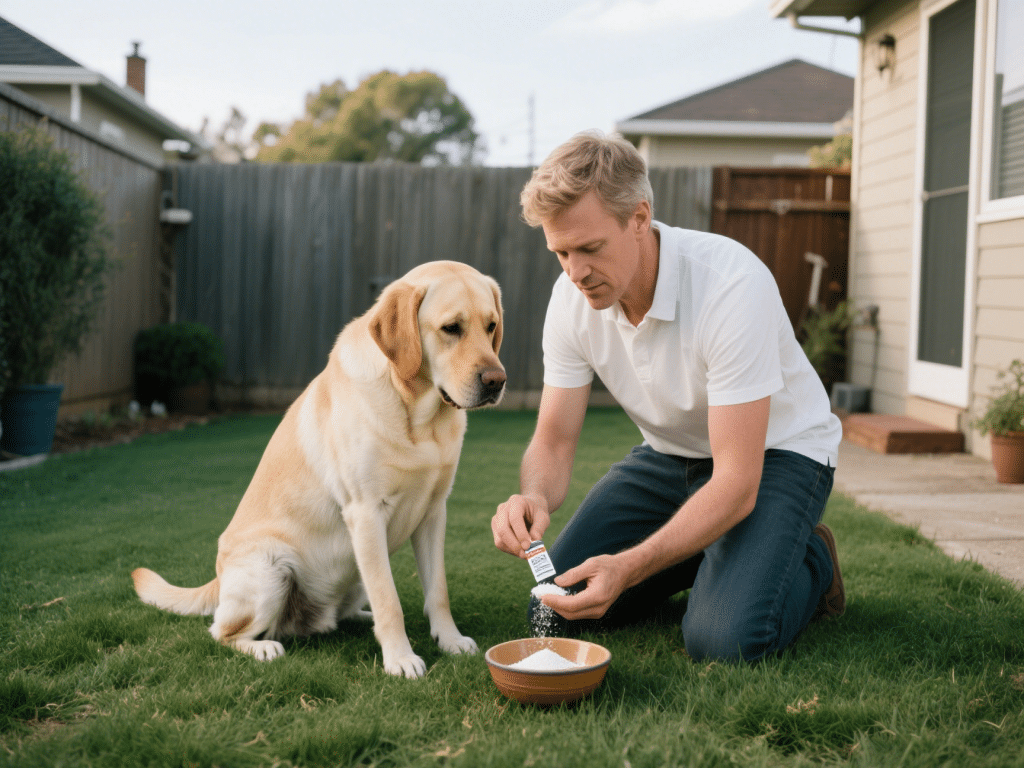
How Often to Deworm Your Kitten: A Complete Guide
IntroductionKittens often acquire intestinal parasites via the mother or the environment. Regular de...
Read More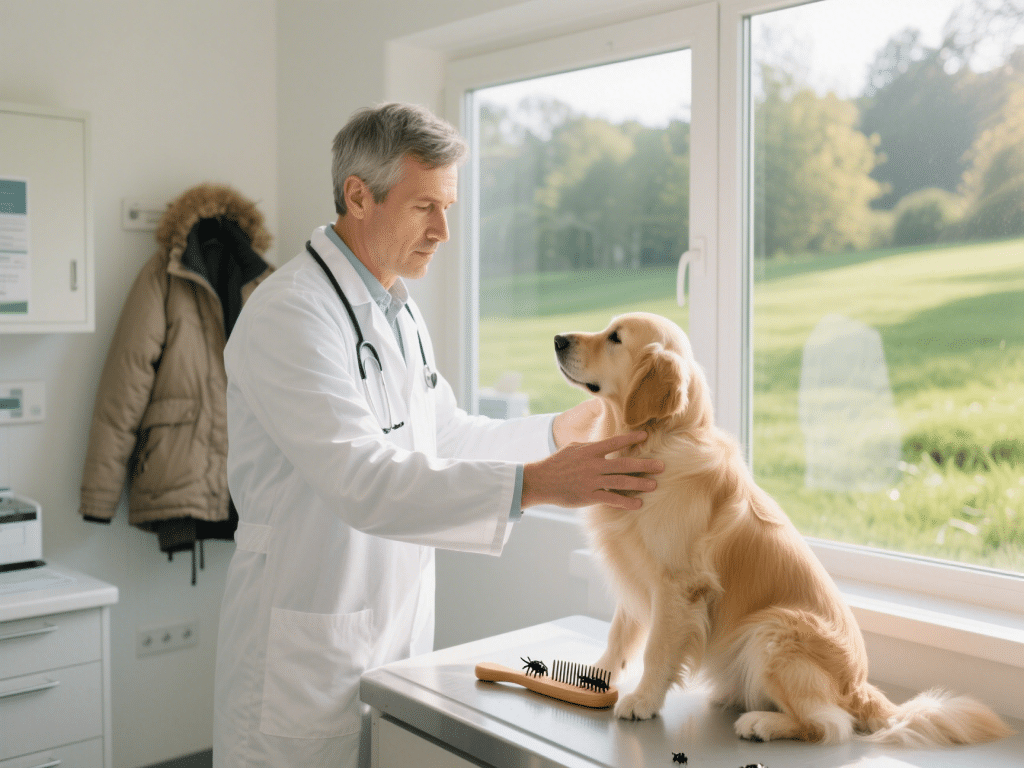
Seasonal Deworming Strategy: Fleas in Summer, Roundworms in Winter
Why Seasonality Matters in Parasite ControlTemperature and humidity fluctuations dramatically influe...
Read More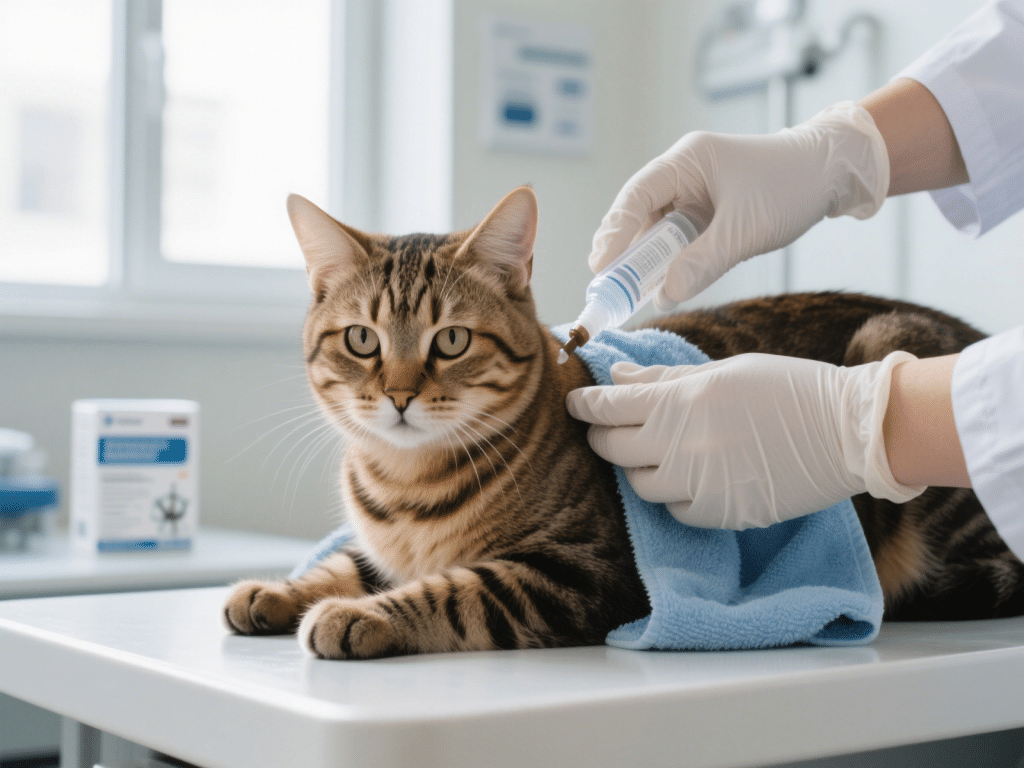
Why Does Your Cat Hide at Deworming Time? Tips for Easier Handling
Understanding Your Cat’s Hiding Instinct During DewormingCats often vanish at deworming time due t...
Read More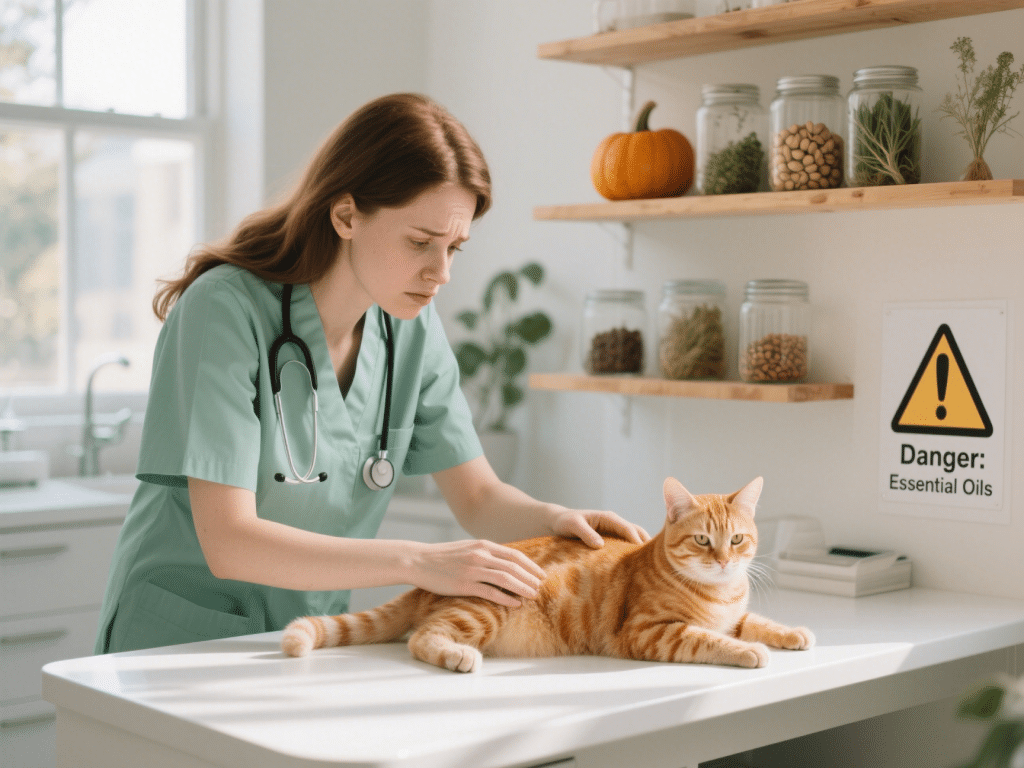
Natural Deworming for Cats: Are Herbal or Essential Oil Solutions Safe?
Natural Deworming for Cats: Are Herbal or Essential Oil Solutions Safe?Many cat owners, seeking gent...
Read More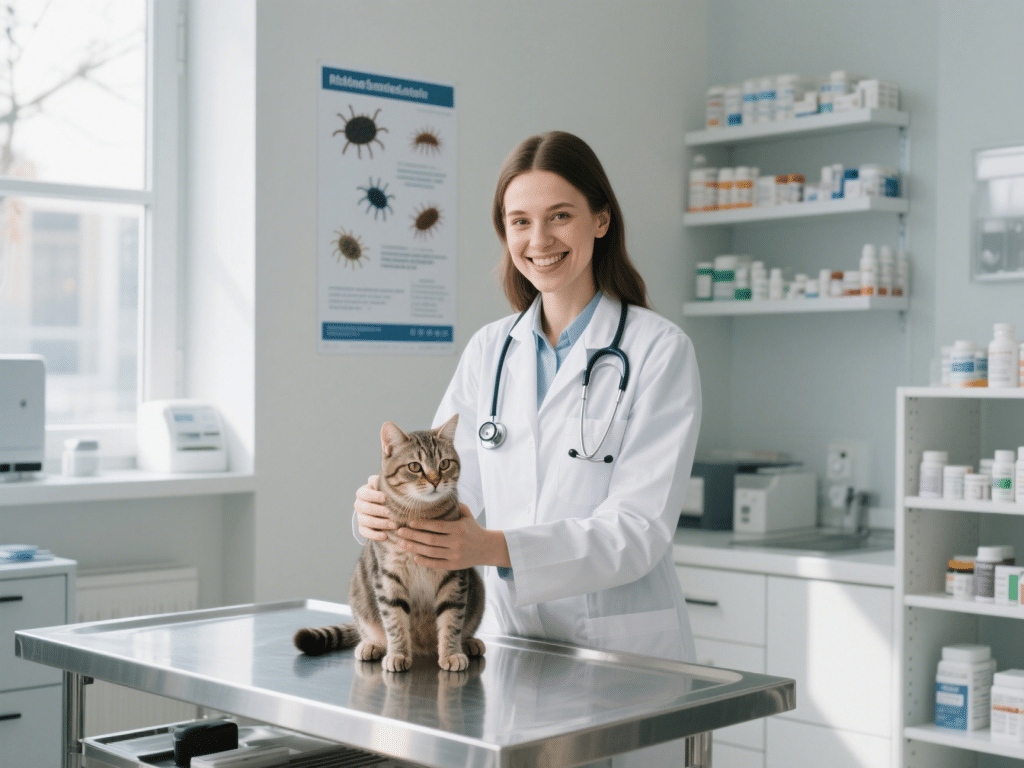
Top 5 Cat Dewormers Compared: Vet-Approved Options for Internal and External Protection
Top 5 Cat Dewormers Compared: Vet-Approved Options for Internal and External ProtectionIntroductionI...
Read More
How to Tell If Your Cat Has Worms: Five Warning Signs to Watch For
How to Tell If Your Cat Has Worms: Five Warning Signs to Watch ForInternal parasites pose a hidden t...
Read More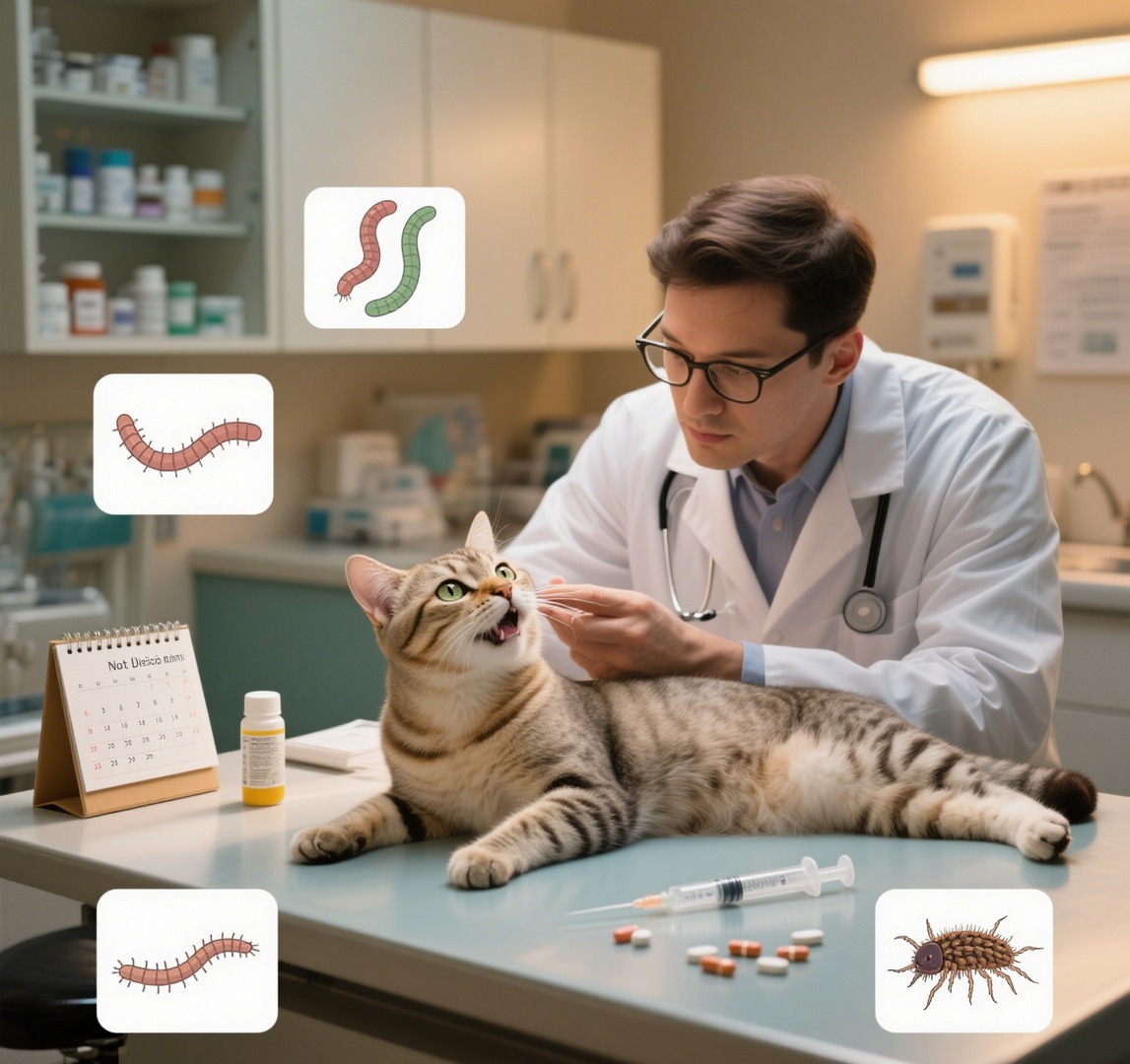
Why Cats Require Regular Deworming: Understanding Internal and External Parasites
1.1 Internal Parasites• Ascarids (Roundworms): The most common intestinal parasites, often causing...
Read More